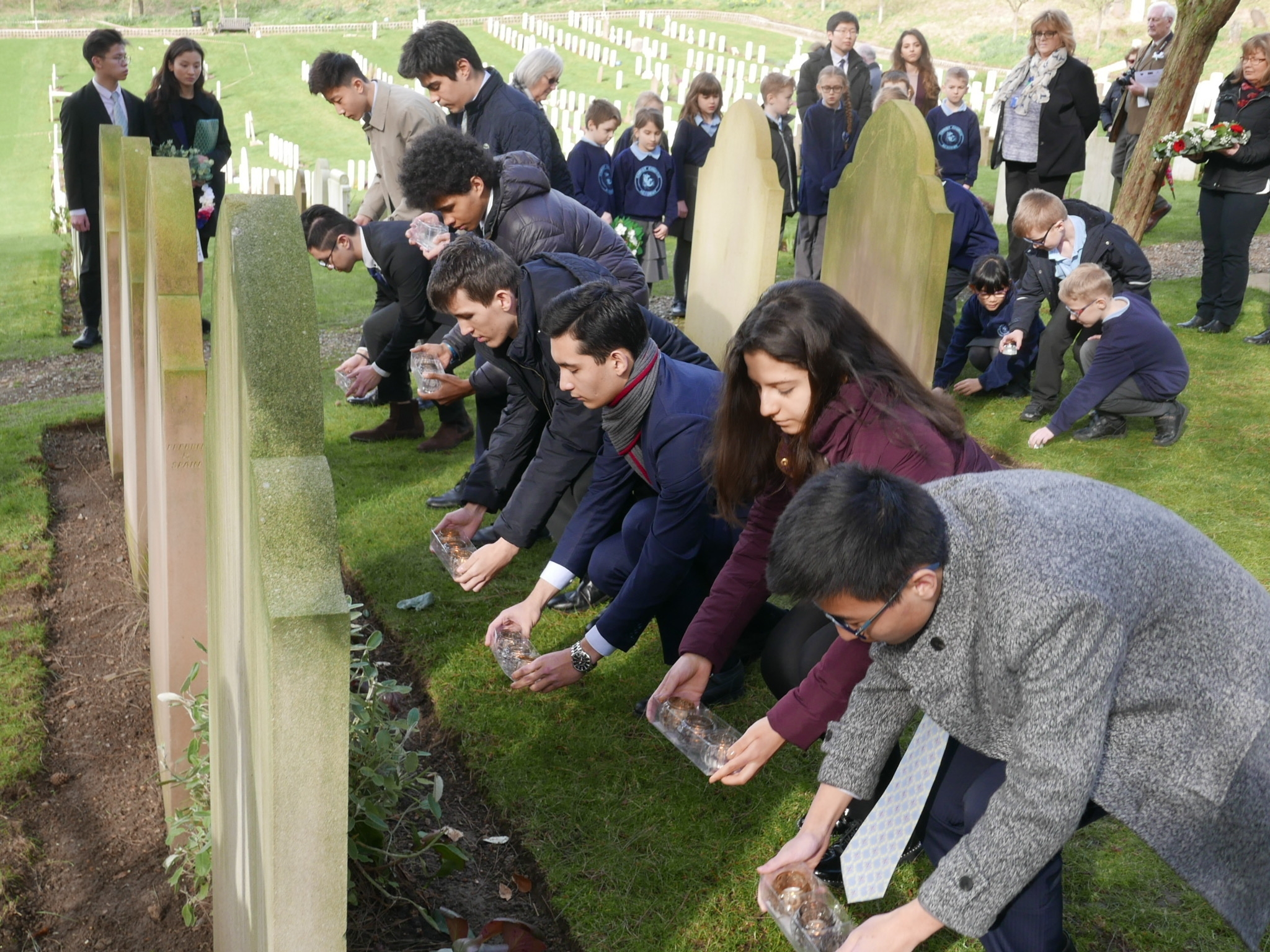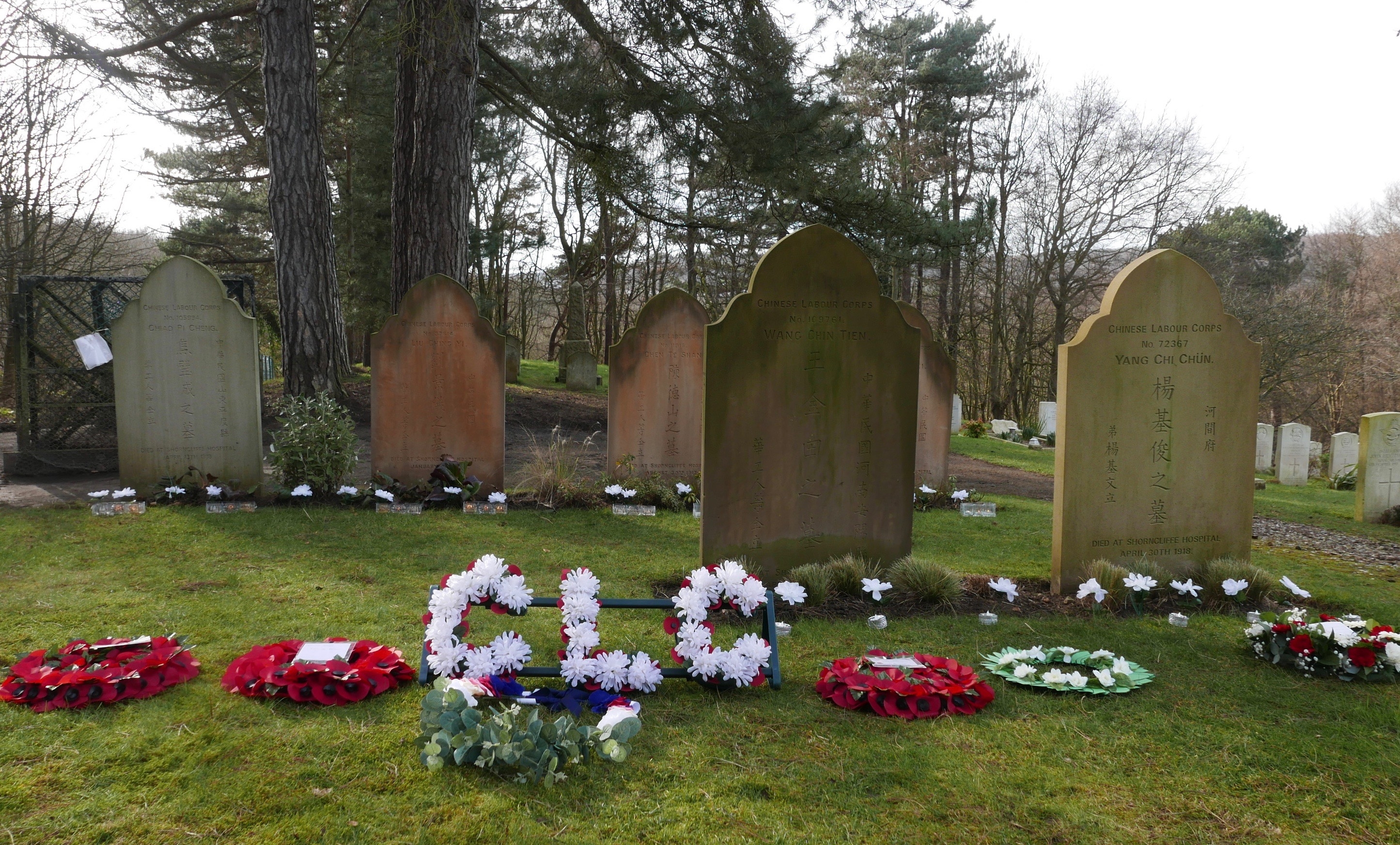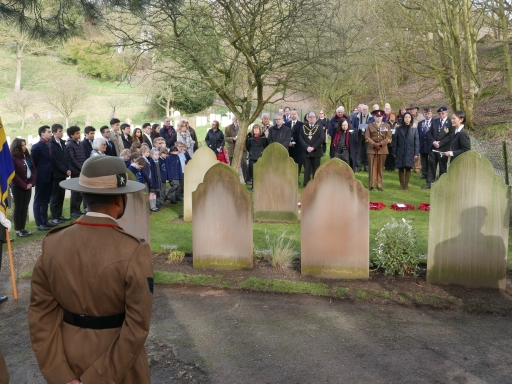Commemorations honouring the Chinese Labour Corps have been held on the Kent coast as part of a Centenary programme aimed at raising awareness of the CLC’s crucial support for the British war effort in WW1.
Pupils and students from two local schools in Folkestone took a lead role in the ceremony, processing through Shorncliffe Military Cemetery with a piper at their head to lay candles and wreaths at the graves of six members of the Chinese Labour Corps.
The CLC men were among 96,000 workers recruited from China in 1917 to dig the roads and trenches needed by the British Army on the Western Front. Most passed through the Channel port of Folkestone on their way to the battlefields.
This week’s event at Shorncliffe, on March 14, was organised by the Meridian Society, a charity dedicated to promoting Chinese culture and understanding.
CLC Project Director Peng Wenlan said: “It is highly unlikely that their descendants know of the existence of these graves or even that these men died in England, and it therefore falls to us to remember them along with all their compatriots who served at the Front in this final year of the centenary of the Great War.”

Students and pupils from Earlscliffe College and Christ Church CEP Academy began the remembrance service by placing candles at the CLC graves.
Soldiers from the Royal Gurkha Rifles, flanked by standard bearers from the Royal British Legion, provided the guard of honour for the ceremony, which was co-hosted by Shorncliffe army base and attended by the Mayor of Folkestone, Councillor Roger West.
Mr West reflected: “I remember when I was stationed here in the 1970s, nobody seemed to know what these graves were about. Thanks to the Meridian Society and local historians, we now know the service the CLC gave to our nation.”
Garrison Sergeant Major Martin Dunn explained: “The Chinese Labour Corps played a crucial role in World War 1, from digging trenches to laying railway tracks. They also carried out the gruesome task of clearing bodies from no-man’s land, putting their own lives at risk from unexploded mines.”
Their contribution should not be underestimated, and the sacrifice they made should never be forgotten, Sgt Major Dunn said.
 In her address, Peng Wenlan paid a moving tribute to the CLC members buried at Shorncliffe, naming each of the six men in turn, and reflecting on their deaths from tuberculosis, influenza or septicaemia.
In her address, Peng Wenlan paid a moving tribute to the CLC members buried at Shorncliffe, naming each of the six men in turn, and reflecting on their deaths from tuberculosis, influenza or septicaemia.
Many soldiers of the Chinese Labour Corps fell victim to respiratory diseases on their long journey to the battlefields of Europe, and were treated at hospitals in Shorncliffe, Plymouth and Liverpool.
But Peng Wenlan said it should never be forgotten that all of these men, regardless of whether or not they reached the Front, made the “conscious decision to leave their homes and their families, some forever, to join a cause about which they knew little.”
“For that alone they should be regarded as heroes and for that alone we should pay them their proper dues.”
See the Meridian Society for more about its First World War Centenary programme commemorating the Chinese Labour Corps in 2018.

Reporting from Shorncliffe by CN Editor
Images: Centenary News
